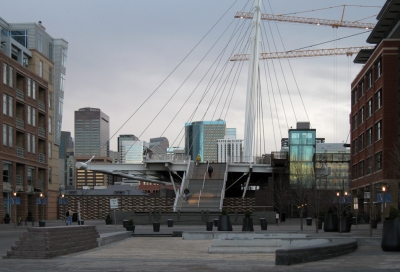
CNU 17: A Great Code Reform Conference in a Strong Code Reform City
Denver's major zoning code revision legalizes and encourages New Urbanism
Submitted on 04/2/2009. Tags for this image:
Warning: Table './archive_cnu/watchdog' is marked as crashed and should be repaired query: INSERT INTO watchdog (uid, type, message, variables, severity, link, location, referer, hostname, timestamp) VALUES (0, 'php', '%message in %file on line %line.', 'a:4:{s:6:\"%error\";s:7:\"warning\";s:8:\"%message\";s:39:\"Invalid argument supplied for foreach()\";s:5:\"%file\";s:100:\"/var/www/archive.cnu.org/htdocs/sites/cnu.civicactions.net/themes/cnu/node-content_news_item.tpl.php\";s:5:\"%line\";i:27;}', 3, '', 'http://archive.cnu.org/cnu-news/2009/04/cnu-17-great-code-reform-conference-strong-code-reform-city', '', '3.128.31.76', 1732332583) in /var/www/archive.cnu.org/htdocs/includes/database.mysql.inc on line 135
For New Urbanists, it’s a principle that has been evident for quite some time: low-density sprawl development simply doesn’t make sense anymore.
For this reason, in CNU 17’s host city of Denver, Colorado, city planning officials just unveiled details of a recoding effort that, according to its drafters, “aims to reinvent the city in a way that increases density and efficiency while fostering the kind of collaborative activity that will nurture the region’s economy for the future.”
With a population that is growing exponentially over time, current zoning requirements were outdated and failed to support such growth. The solution? Mixed-use development.
“We’re talking about integrated land use as opposed to the old model, where you had separate use, where you lived in one place and worked in another and shopped in another,” according to project manager Peter Park in a recent interview with The Colorado Independent. “That’s a model that may have worked for a while, but it also had dramatic [negative] effects.”
The revision, which is the first of its kind in Denver in nearly half a decade, would divide the city into “areas of stability” and “areas of change,” honoring the need to maintain the city’s character while seeing the need for a reworking of mixed-use development to make it more appealing to individuals and businesses.
According to Park, who is a host committee co-chair of CNU 17, the process of passing the plan through City Council isn’t made easy by its ambitious objective of rewriting a number of current ordinances. But if all goes as hoped, the new code will be given the green light by August.
“We’re being deliberate,” said Park. “You have to be incremental. You address questions and edit the document based on responses. You have to do outreach, assemble people who know what they’re talking about—developers, architects, brokers, residents… because the fact is everyone has a stake in it.”
You won’t want to miss out on CNU 17’s track of eight breakout sessions focusing on coding:
A City-wide Form-Based Code for Denver
Peter Park delves further into his experience with “Blueprint Denver” and the conclusions that can be drawn from projects of this type.Achieving Sustainability Using Form-Based Codes and the Transect
Learn the tools needed to effectively implement various aspects of sustainability through the use of form-based codes.Can Form-Based Coding Become a Best Practice Instead of an Exotic Alternative to Zoning?
Examine ground-breaking moves by diverse agencies: a transect-based character manual covering metropolitan Nashville-Davidson County (TN); a pre-approved toolkit for regulating mixed-use development in designated urban centers and corridors of Prince George's County (MD); and a flexible rezoning process for mixed-use infill projects in suburban Sarasota County (FL).Implementing Plans through Early Form-Based Codes: Assessing the Built Results at different transect levels
Look at some of the common problems with implementing a form-based code, including the work done (or not) prior to the code, the approval process, who is writing the code, standards within the code, and implementation post-adoption.Implementing the SmartCode – The Real Fun Begins
Hear the ‘how-tos’ of SmartCode implementation and administration from those who are at the forefront of the effort.The Politics of Adopting a Form Based Code
Featuring a panel of elected officials and expert practitioners, learn the political strategies and hear the first-hand accounts of adopting form-based codes.The Sustainable, Affordable, Visitable, Edible Transect: New Modules for the SmartCode and other Development Codes
Find out about the latest transect-based, form-based modules, available as freeware to all.Today's Best Form-Based Codes
Discover the exemplary features of each of the 2009 Driehaus Form-Based Code Award winners, and hear about the lessons learned from the winning communities.
To learn more about CNU 17, and to register, visit cnu17.org.
Photo via faceless b of Flickr under a Creative Commons license.

